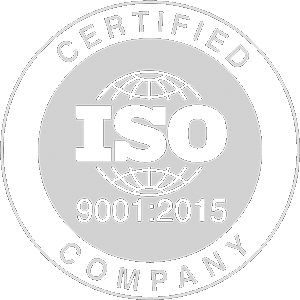>PTFE for healthcare applications is essential due to its excellent biocompatibility, chemical resistance, and non-toxicity. These properties make it ideal for applications requiring sterility, purity, and durability, ranging from medical devices to cleanroom equipment and drug production systems.
>In pharmaceutical manufacturing, PTFE seals, diaphragms, and gaskets are commonly used in pumps, valves, and mixers exposed to aggressive solvents and rigorous sterilization cycles. The material’s smooth, non-adhesive surface inhibits bacterial growth and simplifies cleaning, while its chemical inertness ensures that pharmaceutical formulations remain uncontaminated.
Within medical technology, PTFE is widely employed in everything from implantable devices to tubing and filtration systems. It withstands sterilization methods such as autoclaving and gamma radiation, and its lubricious surface reduces friction in devices designed for internal use, enhancing patient comfort and device longevity.
- Biocompatibility: Safe for use in medical and surgical environments.
- Sterilization Friendly: Withstands autoclaving and chemical disinfection.
- Non-Reactive: No adverse interactions with pharmaceuticals or bodily fluids.
- Precision Machinability: Supports tight tolerances for sensitive instruments.
Medical Industry
- Biocompatible Coatings: PTFE coatings create non-stick, biocompatible surfaces on surgical tools and medical equipment, easing cleaning and reducing infection risk.
- Diagnostic and Biopsy Tools: Utilized in biopsy instruments and diagnostic devices where chemical stability and biocompatibility are crucial.
- Dental Products: Incorporated into dental floss and implant components due to low friction and compatibility with the human body.
- Drug Delivery Systems: PTFE is featured in stent coatings and implantable drug reservoirs for controlled release applications.
- Implantable Medical Devices: Used in vascular grafts, heart valve components, and shunts because of its blood compatibility and inert nature.
- Medical Devices: Found in catheters, guidewires, and sheaths, PTFE reduces tissue damage through its lubricious surface during insertion and removal.
- Orthopedic Implants: Applied as coatings on joint replacements to reduce friction and wear.
- Radiology Equipment: Functions as an electrical insulator in imaging devices, maintaining system integrity.
- Surgical Instruments: PTFE coatings improve the performance of forceps and scissors in minimally invasive surgeries by reducing friction.
Pharmaceutical Industry
- Bioreactors: PTFE components used for cell culture systems due to chemical resistance and sterilization tolerance.
- Gaskets and Seals: Provide leak-proof, contamination-resistant seals in pharmaceutical processing equipment.
- Laboratory Equipment: Employed in beakers, stirrers, and containers for their non-reactive and easy-to-clean properties.
- Lining Materials: Applied inside pipes, tanks, and vessels to protect equipment from corrosive chemicals and maintain purity.
- Pharmaceutical Coatings: PTFE coatings reduce residue buildup on processing surfaces, simplifying cleaning and cross-contamination prevention.
- Tubing and Hoses: Transport ultra-pure liquids and gases, withstanding harsh chemical exposure and sterilization.
- Valve Components: Used in valve seats, diaphragms, and O-rings to ensure reliable, chemically inert seals in pharmaceutical valves.
- Patient Safety: Reduces risk of contamination or chemical interaction.
- Device Reliability: Enhances performance of catheters, valves, and tubing.
- Regulatory Acceptance: Compliant with strict industry health standards.
- Cleanroom Compatibility: Ideal for sterile, controlled manufacturing environments.
In medical and pharmaceutical environments, PTFE for medical applications ensures safer, cleaner, and more efficient care with proven reliability and performance.
